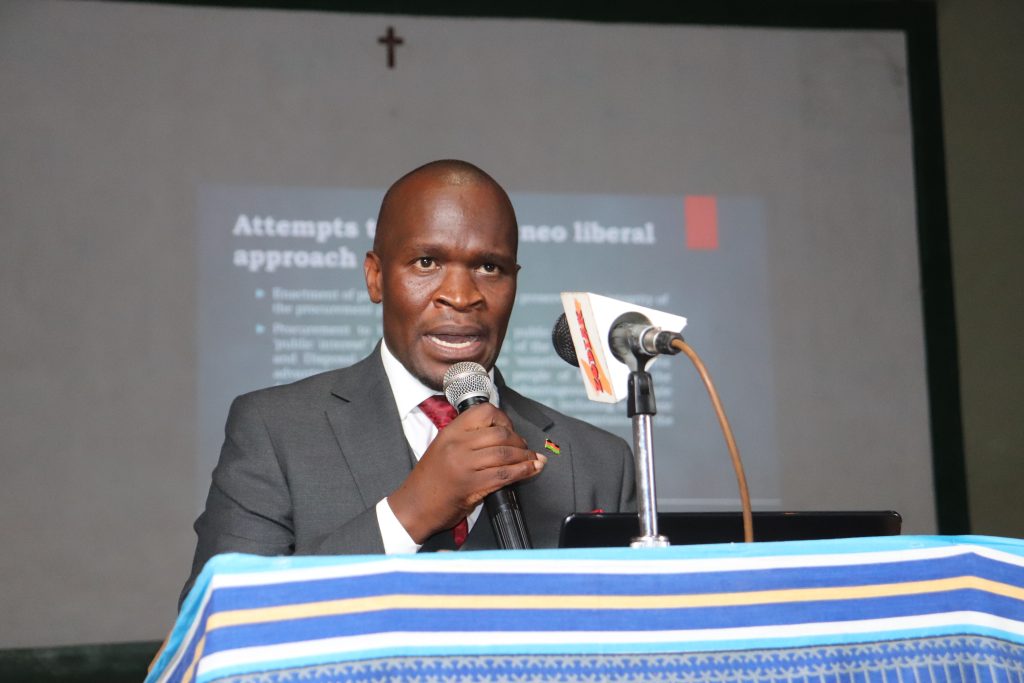Malawi’s Attorney General (AG) Thabo Chakaka Nyirenda this week on Wednesday held a Public Lecture at the Catholic University of Malawi, under the theme; The Interface between Law, Governance and Development in Malawi.
Speaking during a public lecture, the AG faulted the country’s decision to privatize state-owned enterprises, arguing the move affects economic growth. Chakaka Nyirenda said Malawi owned enterprises that helped the economic growth of the country.
“Malawi created the following statutory corporations to support economic development: the Agricultural Development and Marketing Corporation, Air Malawi Limited, the Development of Malawian Traders Trust, the Kasungu Flue-Cured Tobacco Authority, the Malawi Dairy Industries, the Malawi Development Corporation, the Malawi Export Promotion Council, the Malawi Railway Holdings Company, Malawi Railways Limited, the Mining Investment and Development Corporation, the Petroleum Control Commission, the Smallholder Coffee Authority, the Smallholder Sugar Authority, the Smallholder Tea Authority, the Tobacco Control Commission, and the Tree Nut Authority, ” Said Chakaka Nyirenda
He added that these state-owned enterprises were privatized due to donor pressure on the country.
“Studies have shown that during the first part of Malawi’s independence (1964–1978), Malawi borrowed to support export-oriented estate agriculture and its supporting infrastructure using the “project approach” to development.”
“Now we no longer borrow to invest; rather, we borrow for consumption, unlike in the past, when the country was using laws that guided that we borrow to invest and the country was able to repay the borrowed money,” said Chakaka Nyirenda.
The Attorney General then expressed a need to review the country’s law for the country to be able to produce through state-owned enterprises.
Studies have shown that privatization started in Malawi in 1984 with an asset swap between two state-holding corporations—the Agricultural Development and Marketing Corporation (ADMRAC) and the Malawi Development Corporation (MDC)—and the Press Corporation through the World Bank and International Monetary Fund’s structural adjustment program in view of the poor performance of state enterprises in the 1980s.
However, active privatization started in 1995. This was achieved through appropriate legislation such as the Public Enterprises (Privatization) Act 1996, which established the Privatization Commission. Forty-two (42) companies were privatized by 2002, with estimated proceeds of USD 20 million (the equivalent of MK1.67 billion).

